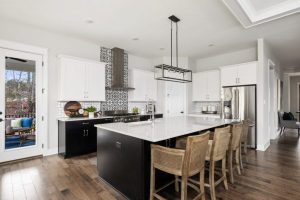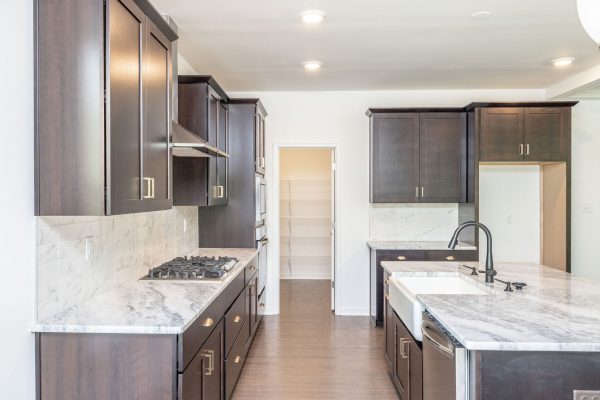Residential Construction Building Homes

Residential construction plays a vital role in meeting the ever-growing demand for housing. As populations increase and cities expand, the need for well-built and aesthetically pleasing homes becomes paramount. Residential construction, exploring the process, key players, and the significance of real estate development, property developers, and housing development. So, let’s lay the foundation and begin our journey into residential construction.
The Importance of Residential Construction
 Residential construction forms the backbone of communities, providing shelter and creating spaces where people can thrive. It encompasses the design, planning, and execution of residential buildings, from single-family homes to multi-unit apartment complexes. The significance of residential construction lies in its contribution to economic growth, job creation, and the fulfillment of housing needs for individuals and families.
Residential construction forms the backbone of communities, providing shelter and creating spaces where people can thrive. It encompasses the design, planning, and execution of residential buildings, from single-family homes to multi-unit apartment complexes. The significance of residential construction lies in its contribution to economic growth, job creation, and the fulfillment of housing needs for individuals and families.
Understanding Real Estate Development
Real estate development involves the acquisition of land, financing, and the subsequent development of properties for residential or commercial purposes. It encompasses various activities, including site selection, feasibility studies, zoning compliance, and securing necessary permits. Identifying investment opportunities, managing the construction process, and ultimately bringing projects to fruition.
The Role of Property Developers
Property developers are key players in the real estate development process. They acquire land, assess market demand, and conceptualize projects that align with market trends and consumer preferences. Property developers collaborate with architects, engineers, and construction teams to translate their vision into reality. Their responsibilities encompass project management, ensuring adherence to budgets and timelines, and marketing the developed properties.
Unraveling Housing Development
Housing development focuses specifically on the construction of residential properties. It addresses the need for safe, comfortable, affordable homes for individuals and families. Housing developers cater to diverse market segments, considering location, affordability, and amenities. They aim to create communities that foster a sense of belonging and meet the specific needs of their target audience.
Factors Influencing Residential Construction
Various factors, including economic conditions, population growth, and urbanization, influence residential construction. Government policies, zoning regulations, and environmental considerations also shape the residential development landscape. Market trends, such as the demand for sustainable and energy-efficient homes, also impact construction practices and materials.
The Residential Construction Process
The residential construction process involves several stages, including construction and delivery of the property. Key steps include land acquisition, architectural design, obtaining necessary permits, site preparation, foundation construction, framing, installation of essential systems (plumbing, electrical, HVAC), interior finishing, and landscaping. Effective project management and coordination among various stakeholders are crucial for timely completion and quality outcomes.
Sustainable Practices in Residential Construction
Sustainability has become an integral part of residential construction. Builders and developers are incorporating eco-friendly practices to reduce the environmental impact of housing projects. These include utilizing renewable energy sources, implementing energy-efficient technologies, incorporating green spaces, and promoting water conservation. Sustainable residential construction benefits the environment and enhances the quality of life for residents.
Innovations in Residential Construction
 Advancements in technology and construction techniques have revolutionized the residential construction industry. Prefabrication and modular construction methods allow for faster and more efficient building processes. Enhance design and planning accuracy. Furthermore, integrating smart home systems and automation adds convenience, comfort, and energy efficiency to residential properties.
Advancements in technology and construction techniques have revolutionized the residential construction industry. Prefabrication and modular construction methods allow for faster and more efficient building processes. Enhance design and planning accuracy. Furthermore, integrating smart home systems and automation adds convenience, comfort, and energy efficiency to residential properties.
Trends and Challenges in the Industry
The residential construction industry is dynamic, constantly evolving to meet changing needs and preferences. Current trends include:
- The integration of green infrastructure.
- The adoption of smart home technologies.
- The emphasis is on multi-functional spaces.
However, the industry faces challenges, such as rising material costs, labor shortages, and regulatory complexities. Construction companies must adapt to these trends while navigating the associated challenges to stay competitive.
The Future of Residential Construction
The future of residential construction holds great promise. Advancements in construction techniques, increased focus on sustainable practices, and innovative design approaches will shape the industry. Robotics in construction processes has the potential to enhance efficiency and productivity. As the demand for affordable and environmentally conscious housing grows, residential construction will continue to play a pivotal role in shaping the communities of tomorrow.
Conclusion
Residential construction is the cornerstone of vibrant communities, providing homes that meet the diverse needs of individuals and families. Real estate development, property developers, and housing development collectively create thriving residential properties. With sustainable practices, technological advancements, and innovative approaches, the future of residential construction looks promising. The importance of well-executed residential construction cannot be overstated as we continue to build for the future.
(FAQs)
What is residential construction?
Residential construction refers to building residential properties, including single-family homes and apartment complexes.
What is real estate development?
Real estate development involves acquiring land, financing, and developing properties for residential or commercial purposes.
What is the role of property developers?
Property developers identify investment opportunities and manage construction projects and market-developed properties.
What is housing development?
Housing development focuses on constructing residential properties for families.
What are some sustainable practices in residential construction?
Sustainable practices in residential construction include utilizing renewable energy sources, implementing energy-efficient technologies, and promoting water conservation.


